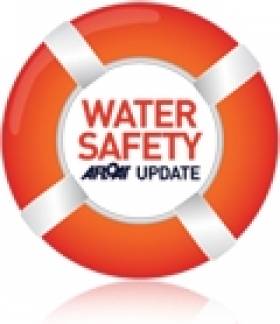Displaying items by tag: APP
RNLI Lifeguards Providing Easter Beach Cover In Northern Ireland
#WaterSafety - RNLI lifeguards will provide Easter cover for the first time on three of the most popular family beaches in Northern Ireland.
For the second year running, lifeguards will be patrolling Tyrella Beach in Co Down, and for the third year will be ready to offer safety advice and assistance on Benone Strand on the north coast.
In addition this Easter, lifeguards will also be patrolling Portstewart Strand, Portrush East Strand and Whiterocks beach, all of which are located along the Causeway Coast.
The cover commences on Good Friday 29 March and will run throughout Easter week until Sunday 7 April.
Despite the unseasonal weather, the charity’s highly trained lifeguards will be ready to assist visitors who brave the elements and take a trip to the seaside over the Easter break.
The lifeguards will operate on Benone, Portstewart, East Strand and Whiterocks from 11am to 7pm, and from 10am to 6pm on Tyrella Beach.
RNLI regional lifeguard manager Mike Grocott said: "Our highly trained lifeguards spot potential dangers before they develop, and are on hand to give appropriate safety advice and respond immediately if anyone gets into difficulty.
"Because our lifeguards work closely alongside our volunteer lifeboat crews, it means the RNLI offers beachgoers and water-users a seamless rescue service from beach to open sea."
The RNLI started providing lifeguard cover on Northern Ireland beaches in 2011, working with Coleraine Borough Council, Limavady Borough Council and the National Trust - and going into its third season now has lifeguards on 10 beaches.
Last year, lifeguards in the areas of Newry and Mourne District Council, Down District Council and the Causeway Coast together responded to 158 incidents and assisted 176 people.
Speaking ahead of the Easter holidays, RNLI lifeguard supervisor Tim Doran encouraged anyone planning a trip to the beach to keep safe.
"Always swim at a lifeguarded beach. Never use inflatables in strong winds or rough seas and check tide times before you go," he said. "If you get into trouble, stick your hand in the air and shout for help and if you see someone else in trouble, tell a lifeguard. If you can’t see a lifeguard, call 999 or 112 and ask for the coastguard."
The RNLI is also encouraging anyone planning a trip to the seaside this year to download its ‘Beach Finder’ mobile app.
The handy app makes it easy to find the nearest lifeguarded beach, and gives users a wealth of beach safety information at their fingertips.
Real-time weather information and a five-day forecast for each location is also included with the app – ideal for anyone wondering whether they’ll need to pack their suncream or waterproofs!
The app is available to download free of charge on both Android and iOS devices from www.rnli.org/beach.
Researchers Ask For Help In Global Plankton Survey
#MarineScience - Researchers at a UK university are hoping to enlist seafarers to help conduct one of the world's biggest studies of ocean plankton.
BBC News reports on the project by the Marine Institute at Plymouth University, which hopes to encourage fishermen and sailors alike to take part in its survey in Britain's coastal waters - including the Irish Sea - and far beyond.
Anyone participating in the study must drop off the side of their vessel an apparatus called a Secchi disk - a 30cm-wide flat white disk attached to a tape measure or a rope, and weighted from below by a small 200g weight.
When the disk disappears from view, that level is known as the Secchi Depth, which measures the turbidity of the water, which in turn is influenced by the amount of the microscopic marine wildlife in the water column.
Seafarers are being asked to record the Secchi Depth and upload to researchers via a mobile app for iOS and Android devices in order to build a complete picture of plankton activity in the world's oceans.
"If we can just get a small percentage of the global population of sailors involved, we can generate a database that will help us understand how life in the oceans is changing," said project leader Dr Richard Kirby.
"It would help us learn much more about these important organisms at a crucial time when their habitat is altering due to climate change."
BBC News has more on the story HERE.

























































